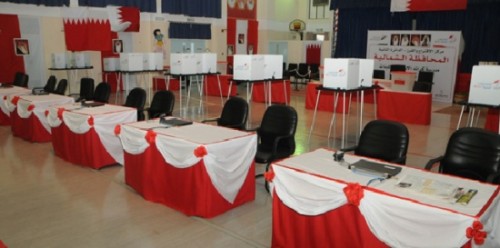Ali Al-Aswad: Upcoming Elections: Bahrain's Endless Crisis

2022-11-01 - 6:04 p
The Bahraini authorities are preparing to hold legislative elections on November 12, 2022, in which opposition democratic parties will not take part after announcing their boycott for the third consecutive time.
This follows the boycott of two electoral cycles in 2014 and 2018 over the longest political crisis in the history of the country since the eruption of the Arab Spring. The authorities decided to eliminate the presence of the opposition in the parliament or cross off opposing voices through a legislation that observers considered the worst in the country's political history after the 1973 dissolution of the parliament (the National Assembly) in terms of timing and the approach adopted by the government. The authorities passed a bill in 2014 through the parliament in the last parliamentary cycle banning the opposition from participating in any legislative elections. This came after Al-Wefaq Parliamentary bloc withdrew from the parliament in 2011 due to the bloody incidents and deterioration of both the security and political situations at that time.
The authorities are currently considering finding an alternative to the opposition and promoting the participation of independents, and even supporting some of those who have been instructed to participate to merely fill a space that is the result of the absence of the opposition that falls under the Political Associations Law.
Beyond the details that marred this legislation, we are addressing here a major question: Will the upcoming elections solve the political crisis the country is witnessing. What will happen after announcing the results or what will the scenarios be? There are possible scenarios for the election results: the first is increasing the number of winners among independent candidates (current MPs) against candidates of political societies (whose participation is limited) or parliamentary blocs. The second is supporting candidates who have no experience in political work and offering them space for participation under various labels, which would perhaps establish weak blocs in the parliament that are neither effective nor influential. The third and worst scenario is that the government controls half of the parliament seats with the aim of increasing the number of members of the two chambers to 60, third of whom are elected but under the state's full oversight.
If one ponders a little bit over why these scenarios are on their way to take place, one may reach a conclusion that the authorities don't want to encourage experienced politicians to enter parliamentary life, limiting that entirely to the executive authority-with all the announced and unannounced challenges-which is far from the idea of carrying out accountability, investigations or commissions of inquiry through a council, half of which is elected-noting the lack of fairness in electoral districts-and the second half is appointed in an undisclosed manner and added to the Council.
What faces the future of the political process in Bahrain resembles the 1970s era, but under the guise of "reform", as there is a lack of implementation of any reform ideas. The evidence is overwhelming, a number of which can be summarized in the following: blatant discrimination between citizens in education, employment, job opportunities of higher ranks, right to housing, freedom of movement, as well as deeming a dignified faith less worthy, for sectarian, political and historical reasons.
It is safe to say that the persecution of those who demand democracy will single-handedly be able to absent any project linked to the reform of the political situation that has been present for more than a century or at least since the WWI era, or linked as well to the formation of a new world in which states took many forms of governance.
Perhaps the major current practices of the authorities regarding the elections give further clarifications about the lack of seriousness on the part of those involved in the management of the elections (which are to be boycotted by large segments of society), for they struck off a number of citizens from the voters lists for reasons related to the voters' stances towards previous elections and their boycott. They are being punished by having their names deleted and made to appeal for returning them to the voters lists. However, many ignored this because they believe that the authorities' practices are far a cry from genuine democracy and are closer to authoritarianism and disrespect of the constitution.
Some may consider the Political Isolation Act as an obstacle to participation in the Parliament; however, the actual obstacle is the authorities' behavior in managing the country's affairs and their disregard for the opposition's pleas, who put forward many visions for pulling the country out of the crisis that began in February 2011, and whose first repercussions are still being suffered to this day-mainly the ongoing imprisonment of those who demand democracy amid the lack of international support to influence the ruling family's decisions that most of which are motivated by retaliation, rather than impartial justice or the rule of law. We now stand facing a new political crisis which the authorities have openly started, but, unfortunately, it is not known how it would end this time with all these givens and developments in the region and world.
Ali Al-Aswad - Former Bahraini MP and Al-Wefaq official
Translated by Bahrain Mirror
- 2024-07-10Bahrain Between External Peace and Internal Reconciliation: Unresolved Issues Require Fundamental Solutions
- 2023-10-02Latifa Al-Husseini: How Many More Blows Must Bahrain's Regime Cause Itself?
- 2023-08-07Latifa Al-Husseini: Ashura in Bahrain
- 2023-06-15Baqer Darwish: About the Government's Mobilization to Rationalize Religious Speech
- 2023-02-22Ali Al-Aswad: The Speaker of the Bahraini House of Representatives Said It